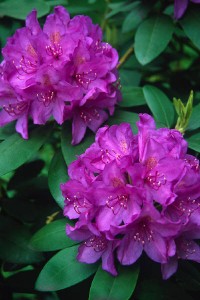A Boston University professor who will be in Aroostook County concerning research on plant flowering and bird arrival times will pay a special visit to the University of Maine at Presque Isle to deliver a talk on climate change and how it impacts the flora and fauna Henry David Thoreau observed in his writings.
Dr. Richard B. Primack, Professor of Biology at Boston University, will speak on The effects of climate change on the plants and birds of Thoreau’s Concord on Thursday, March 28, from 12:45 to 1:45 p.m. in Folsom 201 (UMPI’s GIS Lab). The public is invited to attend this free presentation.
Dr. Primack will discuss one of his longtime research efforts—comparing Thoreau’s records about when particular species of plants would bloom around Concord, Massachusetts, to his own modern-day records about when those same plants are blooming. The fascinating thing he and other researchers have discovered is that flowers and plants are blooming earlier in the season as temperatures rise.
Dr. Primack and graduate student Caitlin McDonough MacKenzie are traveling to northern Maine this spring to continue that research. They have acquired a set of observations recorded by L.S. Quackenbush from 1940-1957 on plant flowering times, tree leaf out times, and bird arrival times in Oxbow. The records are part of the William H. Drury Library of Natural History at College of the Atlantic.
Primack contacted Dr. Jason Johnston, UMPI Assistant Professor of Wildlife Ecology, in February to help with some aspects of the research. While this visit north serves as a planning trip for Dr. Primack and MacKenzie, they ultimately hope to collect data in Oxbow over the coming spring seasons and compare their records with Quackenbush’s records. Dr. Johnston and other local scientists will be resurveying some of the plants and animals with Dr. Primack.
Dr. Primack received his Ph.D. from Duke University in 1976. In addition to producing conservation biology textbooks and working with co-authors to produce textbooks in other languages, he serves as Editor-in-Chief of the international journal Biological Conservation.
Dr. Johnston said Dr. Primack’s talk on March 28 is one the campus and community won’t want to miss.
“This is going to be a great opportunity to hear about the fascinating story of how Thoreau’s detailed observations around Walden Pond 160 years ago are helping scientists understand how climate change is affecting flowering plants, trees, and wildlife today,” he said.
For more information about this special presentation, contact the University’s Community and Media Relations office at 768-9452.

